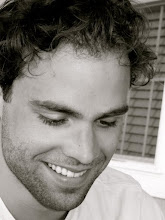We wake. We live. We sleep. A circuitous motion. Day after day. Four seasons change and if we're lucky, we still wake, live and sleep. Within these moments of consciousness there is a multitude of people who use their livelihood to seek perfection. What is perfection? The absence of a mistake obviously. But what is a mistake? A flawed form. In many forms of art what some might deem a mistake by one, is often written off in a lauditory critique of "soulfulness"; “brilliance”. In singing? A note gone slightly flat--that's blues, baby. A sung note cracking at the seams from ravaged vocal cords--soul. A grisly and gravelly timbre--vast in soulfulness, representing the scars carved into one’s Self. In painting different brush strokes could be seen as less then perfect. Take the Van Goghian characteristic of impressionistic strokes for example. While some disapprove of such flawed and nonrepresentational figures--many see it as beautifully abstract, soulful. Imperfection is perfection in the arts.
8/9/09
Imperfection is Perfect in the Arts
Subscribe to:
Post Comments (Atom)

I found this excerpt from Anne Lamott's book Bird by Bird I think you will find interesting:
ReplyDelete(from her chapter called Perfectionism)
Besides, perfectionism will ruin your writing, blocking inventiveness and playfulness and life force (these are words we are allowed to use in California). Perfectionism means that you try desperately not to leave so much mess to clean up. But clutter and mess show us that life is being lived. Clutter is wonderfully fertile ground--you can still discover new treasures under all those piles, clean things up, edit things out, fix thing, get a grip. Tidiness suggests that something is as good as it's going to get Tidiness makes me think of held breath, of suspended animation, while writing needs to breathe and move."
and then at the end, echoing your sentiments:
"Perfectionism is a mean, frozen form of idealism, while messes are the artist's true friend. What people somehow (inadvertently, I'm sure) forgot to mention when we were children was that we need to make messes in orer to find out who we are and why we are here--and, by extension, what we're supposed to be writing."